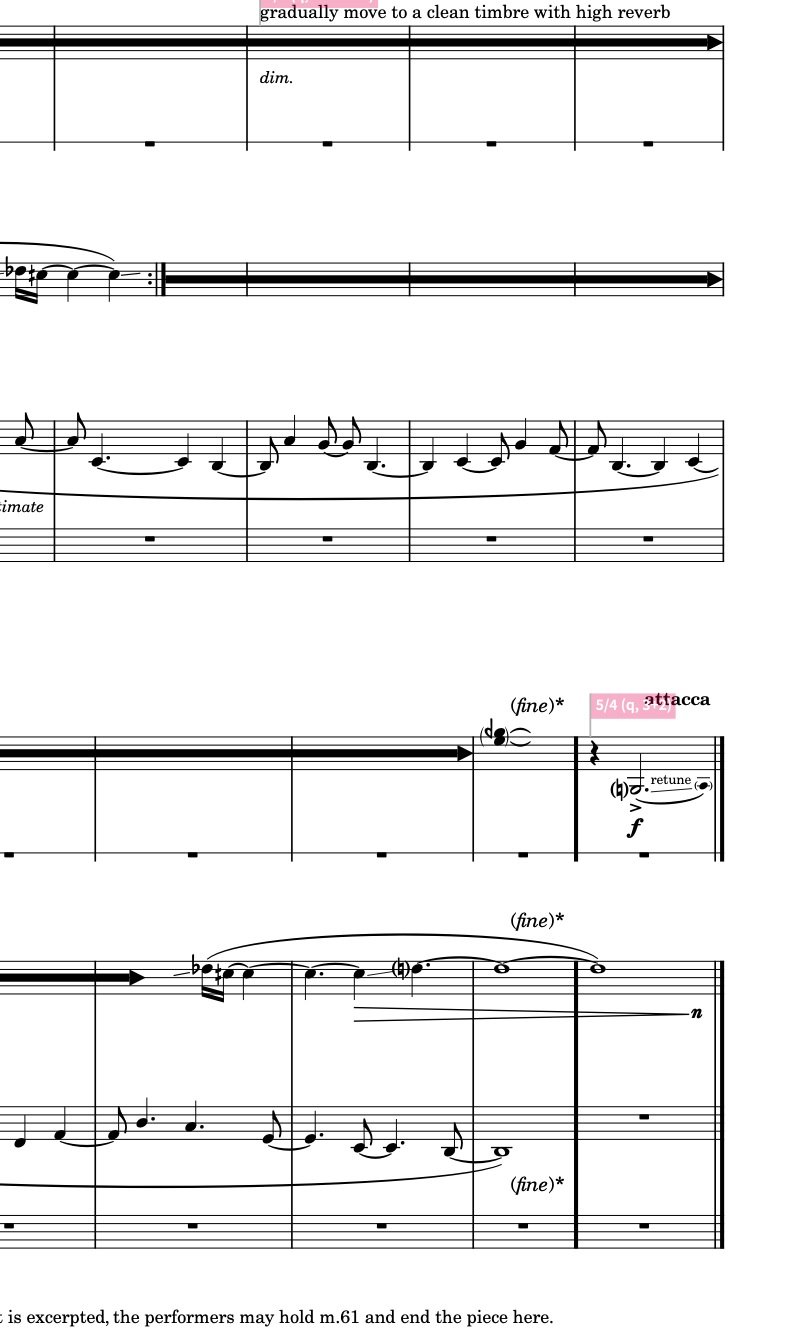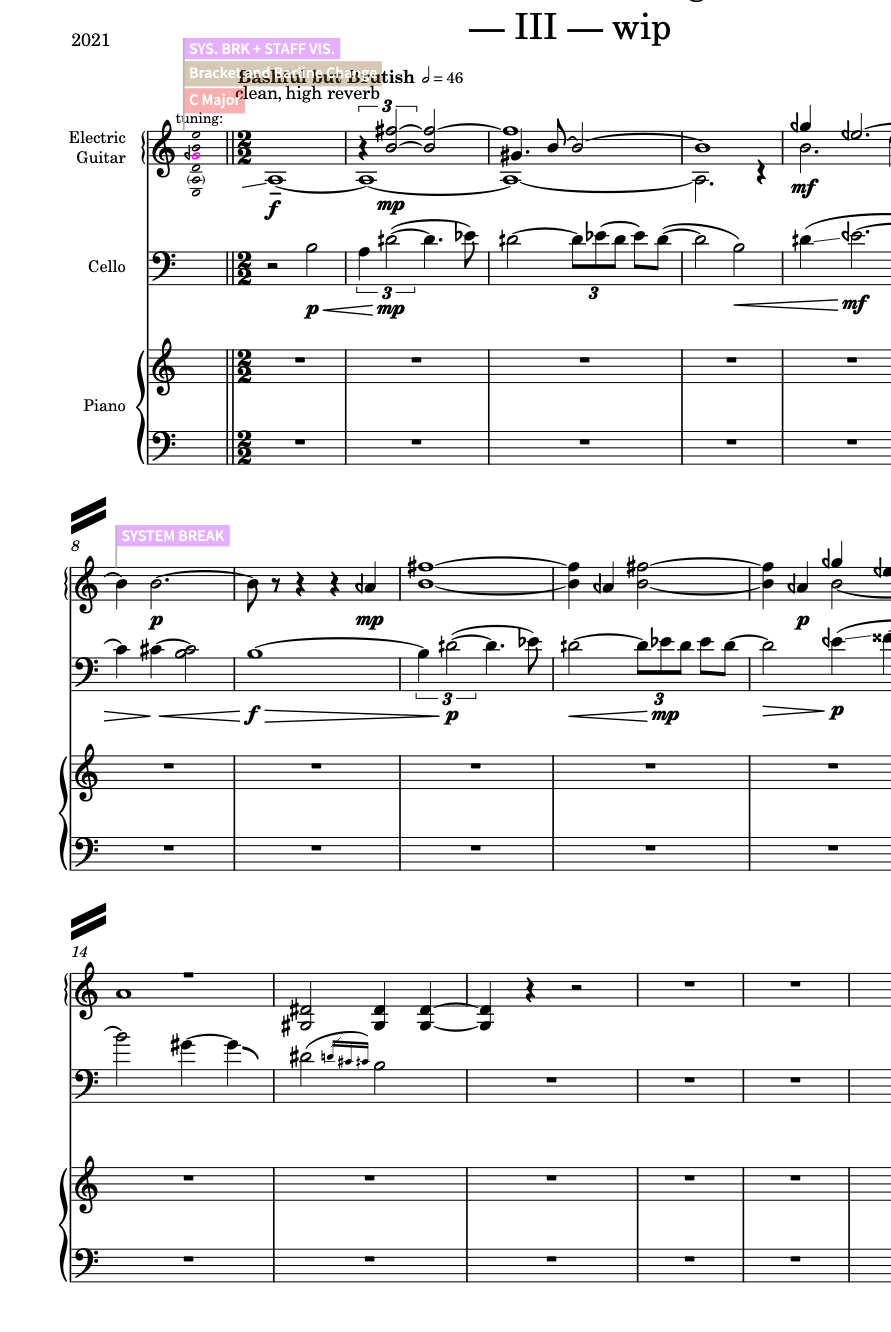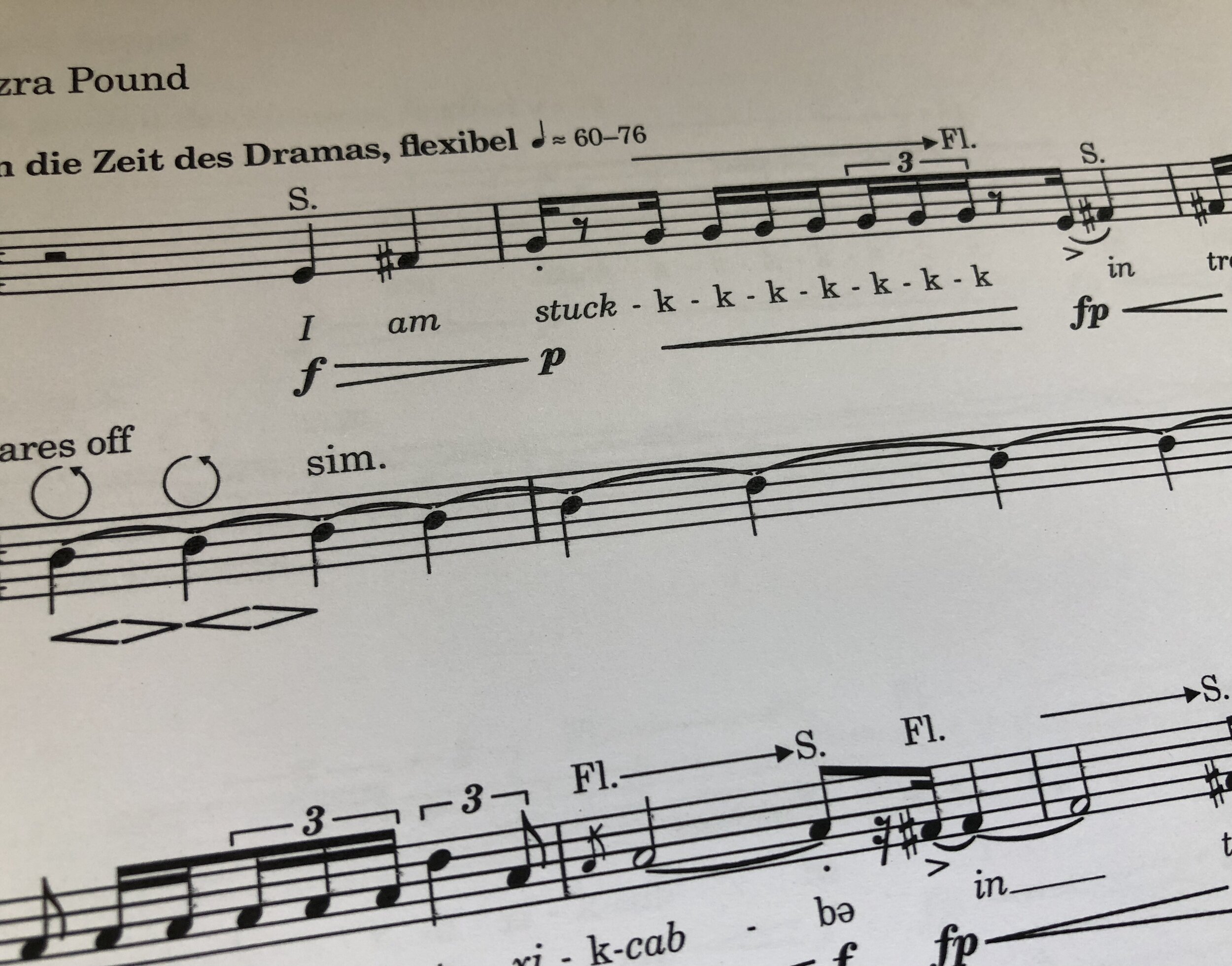Restarting Until It Clicks: a Compositional Process
By Nick Main
The most exciting moment in my composing process is overcoming the most challenging part. It’s that moment when everything ‘clicks’ together, when the conceptual and the practical sides of a piece suddenly make sense in the same space. A thesis if you will. From there it’s simply a matter of writing the notes and refining, refining, refining...
Getting to that moment is a sort of triangulation between all the concepts which go into the piece. My first step is to learn more about both the specific people I’m writing for and the historical repertoire of the instruments. I usually ask the performer(s) what they most enjoy playing, listening to, and what other interests they have, trying to get a vibe of who they are if I didn’t know them prior to our collaboration. From there, I listen to a bunch of music to see what directions other composers and performers have taken the instrument in.
I begin writing fully from intuition until I get stuck, usually at around a minute or two of music. This prompts me to zoom out and look at all the parts together: what I learned about the performer(s) and history of the instrument(s), a prompt if the commission came with one, the musical material I’ve generated thus far, and my current interests be they musical, visual, poetic, philosophical, theological, or otherwise. From there I sort of float, thinking and meditating on those parts when that ‘click’ happens. I restart the piece, drawing on the material I’d begun playing with in the earlier draft. This part of the process is cyclical: I often must restart multiple times, though each time retaining more of the material from the previous draft… In my “composition junk” folder lay anywhere from five to twenty drafts of each piece I’ve written in the past year.
On the more technical side, I sing every musical line I write. In this way, improvisation is a part of my process. I also tend to write start to finish. Sometimes, I jump around writing a later phrase here and there though once I get back to them, they often need to be reworked to fit the context of what forms organically around them. Once I have a completed rough draft which I’m happy with, all that’s left is tweaking and refining it. This is probably the most fun part. There’s a sense of accomplishment in putting on those final touches and giving it that extra glow.





